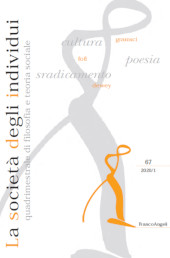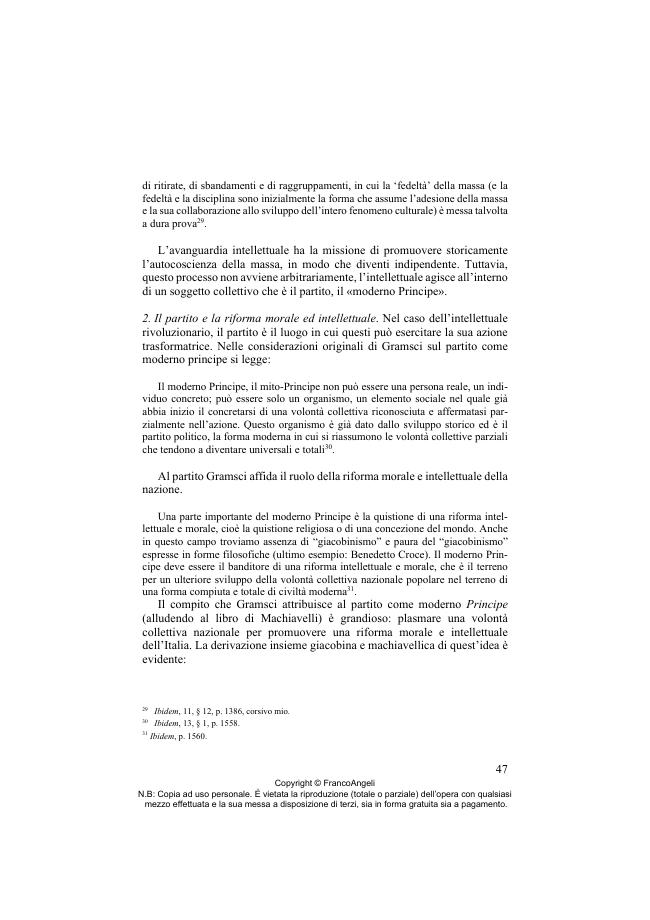Gramsci e l'elitismo di sinistra
36-57 p.
The elite theory, developed by Pareto, Mosca and Michels, is an anti-democratic theory because it denies the founding principle of democracy, that is, the political competence of citizens. The theory, however, admits several readings, including a democratic reading, which influenced the Italian liberal and anti-fascist authors such as Gobetti, Dorso, Burzio, Einaudi, Croce, Salvemini. Bobbio interprets this democratic aspect of elitism not as the denial of the existence of democratic regimes, but as a realistic view of democracy as it is, and not an idealist vision of how it should be. Bobbio is thus included among the authors inspired by the doctrine of democratic elitism, such as Hans Kelsen and Joseph Schumpeter. From this perspective, Bobbio analyses the influence that elitism has had on the Italian and international socialist and communist Left, in particular on the thought of Antonio Gramsci.
This paper discusses a possible 'elitist' reading of Gramscian political thought, which shows the criticisms and differences that separate it from the elitists, but at the same time the elements of a Gramsci elitist theory present in some key concepts of his political conception. [Publisher's text].
Fait partie de
Società degli individui : 67, 1, 2020-
Articles du même numéro (disponibles individuellement)
-
Informations
Code DOI : 10.3280/LAS2020-067004
ISSN: 1972-5752
KEYWORDS
- Elite theory, democratic elitism, Antonio Gramsci, Norberto Bobbio



